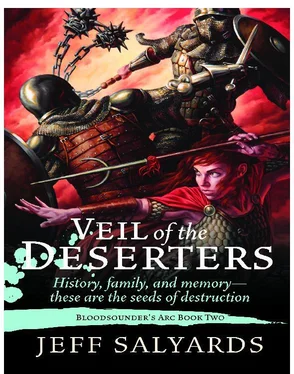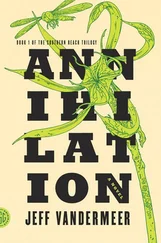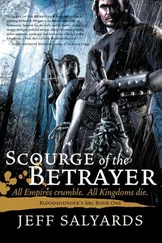Jeff Salyards - Veil of the Deserters
Здесь есть возможность читать онлайн «Jeff Salyards - Veil of the Deserters» весь текст электронной книги совершенно бесплатно (целиком полную версию без сокращений). В некоторых случаях можно слушать аудио, скачать через торрент в формате fb2 и присутствует краткое содержание. Жанр: Фэнтези, на английском языке. Описание произведения, (предисловие) а так же отзывы посетителей доступны на портале библиотеки ЛибКат.
- Название:Veil of the Deserters
- Автор:
- Жанр:
- Год:неизвестен
- ISBN:нет данных
- Рейтинг книги:3 / 5. Голосов: 1
-
Избранное:Добавить в избранное
- Отзывы:
-
Ваша оценка:
- 60
- 1
- 2
- 3
- 4
- 5
Veil of the Deserters: краткое содержание, описание и аннотация
Предлагаем к чтению аннотацию, описание, краткое содержание или предисловие (зависит от того, что написал сам автор книги «Veil of the Deserters»). Если вы не нашли необходимую информацию о книге — напишите в комментариях, мы постараемся отыскать её.
Veil of the Deserters — читать онлайн бесплатно полную книгу (весь текст) целиком
Ниже представлен текст книги, разбитый по страницам. Система сохранения места последней прочитанной страницы, позволяет с удобством читать онлайн бесплатно книгу «Veil of the Deserters», без необходимости каждый раз заново искать на чём Вы остановились. Поставьте закладку, и сможете в любой момент перейти на страницу, на которой закончили чтение.
Интервал:
Закладка:
Henlester shook his head slowly, though it was clear he was shaken a bit. “I have nothing to tell you. Anroviak was a traitor to our order. Whatever he might or might not have known about binding witches has certainly seeped into the sands of time and been lost to the world forever. I have… nothing to tell you.”
“So you have said.” Braylar snatched a firebug out of the air, crushed it between his fingers, stepped forward, grabbed Henlester by the arm as he tried to step away, and then smeared the luminous leavings on the high priest’s forehead. “But even if you do happen to be telling the truth, it could simply be that you no longer recall the details. You are incredibly old, as you say. You likely have forgotten more about your order’s history than any living priest knows.
“But that is the terrible beauty about Memoridons-they can sift through every last thing a man has seen or done until they find what they are looking for. They will leave wreckage in their wake to be sure, but so be it, it can’t be helped. I do not envy them the task, in truth-you have done awful things that would make a Syldoon blush, priest. I’m sure it will be an uncomfortable, gruesome slog for them, and they will need to cleanse themselves with copious amounts of lye when they are done. But we are out of time. And so are you.”
The captain addressed Vendurro. “Take our cleric back to the wagon and fetch the Memoridons, Sergeant. We will have our answers now and be done with this.”
“Aye, Cap.”
Braylar waited as Vendurro grabbed the high priest by the arm an. “You heard Cap. Come on, your Gloriousness.”
We watched the pair of them start toward the wagons. I waited until they were out of earshot and then whispered, “You do not intend to really ask Skeelana or-”
“Of course not,” Braylar said.
“What will you do if, well, if-”
“If Henlester should call my bluff, I will simply say my persuasive lieutenants here convinced me to hold off until we have returned to Sunwrack. But I don’t think it will come to that. Watch.”
Henlester was taking small, shuffling steps, each more halting than the last. He was halfway to the wagons when he suddenly wrenched his arm free and spun, calling out to the captain. “Black Noose!”
The captain called back, “Your Eminence?”
Henlester hesitated. Then he nodded, and Vendurro led him back, trying to stifle a smile, and mostly failing. The high priest, a man who just a few days ago had been sitting in one of the largest seats in Anjuria, surrounded by wealth (more than his share, in fact), pulling the strings of lesser priests across the barony and beyond, and attended by faithful men who would procure him mutilated and crippled whores for his awful pleasure, suddenly looked defeated. And old. Being captured or imprisoned, you could always devise a means of escape or wait for your allies to ride to your rescue. So long as you lived, there was still a chance of some kind, especially for a powerful figure. But the prospect of having his towering intellect toppled, never to be rebuilt, of being husked by the witches he loathed even more than the Syldoon, well it was too much. That prospect was a fate worse than death, and the one thing that finally cowed the mighty and horrific cleric.
Henlester’s eyes were full of hate, but also defeat. “I will tell you what I know. All of it.”
And so he did.
The remainder of our trip, we were strangely unaccosted and free from danger. Gurdinn and his men had either gotten lost or heeded the warning, whatever other wandering bands of Hornmen there were out there had wandered down other trails, and the first and only ripper I saw was back in Alespell.
Skeelana’s single ministrations must have cleaned the captain out thoroughly, as he didn’t suffer as he had earlier, even after using Bloodsounder to claim lives.
We continued our gradual trek north, the familiar gentle valleys and pastures gradually giving way to rougher, rockier, hillier terrain as our progress was slowed by the pace of the wagons. We passed through farmsteads and villages, orchards and quarries, and a few ruined temples of the Deserter Gods. But with each day and another fifteen or twenty miles behind us, the changes to the landscape became more noticeable. The woods and dense forests thinned or were more broken up by fields, the towering fur pines and sky elms and champion oaks giving sway to stunted sycamores and dwarf spruce, and the further we went, to all manner of foliage I wasn’t familiar with at all. There were groves of trees where the thick trunks twisted and wound around themselves, looking as if they had been bent and tied in knots by giants, and the branches were short and heavy with thorny, diamond-shaped leaves.
Apple trees gradually gave way to pear trees and fig. As we broke for camp one day, I saw a stand of trees that were queer-they peeled, like birch, only instead of being white, the bark was a ruddy orange color, and hanging from seemingly every limb were pods that gleamed like polished metal, flashing in the sun so brightly they were difficult to look upon.
I asked what they were, and Vendurro, pulling the saddle off his horse, replied, “Steel moths.”
“On account of their chrysalises being so shiny.”
“Nope,” Mulldoos offered. “On account of them being full of moths with sharp steel wings. They come out of there, you best crawl under a wagon, as they’re like to slice your throat or cut your eyes right out of your head.”
I looked at him, and the uncertainty must have been stamped on my face.
“Gods be cruel, but you are a naïve bastard.” He laughed and hauled his own harness down. “Get under the wagon, scribbler. And wear a leather bib. Plague me.”
The land might have been slowly changing, but the translation gave only more of the same. Bawdy (and badly composed) poetry complete with erotic drawings in the marginalia (no translation needed there!) to ridiculous bestiaries full of manticores and long-limbed elephants, giant translucent bats, and something floating through the air that looked quite a bit like the boneless fringe fish.
But few extended references to memory witches, cursed weapons, or anything else Braylar had assigned me to catalogue. At least, nothing that added significantly to the findings we had already cobbled together with my previous efforts and Henlester’s corroboration. Still, the infrequent allusions, even if brief, did seem to substantiate what we had gleaned already.
Just as it had with Alespell, traffic on the road increased the further we traveled into Thurvacia and the Syldoon Empire, though more due to the draw of the capital city than any famous fair. Cairns and carts, larger lumbering wagons, a woman driving goats with one of her small unruly children riding a burly one at the rear, men on donkeys or leading them along, a great many on foot, and a few wealthy enough to own horses. With the inked nooses bared to the world now, all of the native Thurvacians moved off the road to let us pass. They had lived the land for thousands of years, doubtless back to the age when the Deserter Gods were known and revered by name and the slaves, fief workers, and fief lords alike were the same people, the same race. But now there was no question who the held power. Anyone seeing a noose (or at least a sizable party of them) bowed or cleared the way, deferential.
And thankfully, no Hornmen or watchtowers in sight. They rode the roads in Anjuria and other kingdoms to the south, but fortunately they had no place in the north. In the Empire, with its standing army, there was no need for soldiers to patrol the routes, protecting (or preying) on travelers.
The road itself changed as well. Traveling through Anjuria it was usually dirt, or mud after a hard rain, and sometimes in a few baronies, cobblestones or bricks, at least in the areas immediately surrounding some of the larger villages or towns. But mostly rutted dirt or wheel-sucking, hoof-swallowing mud that seemed designed to slow travel and break ankles. But once we crossed over into Thurvacia, it was a different thing altogether.
Читать дальшеИнтервал:
Закладка:
Похожие книги на «Veil of the Deserters»
Представляем Вашему вниманию похожие книги на «Veil of the Deserters» списком для выбора. Мы отобрали схожую по названию и смыслу литературу в надежде предоставить читателям больше вариантов отыскать новые, интересные, ещё непрочитанные произведения.
Обсуждение, отзывы о книге «Veil of the Deserters» и просто собственные мнения читателей. Оставьте ваши комментарии, напишите, что Вы думаете о произведении, его смысле или главных героях. Укажите что конкретно понравилось, а что нет, и почему Вы так считаете.










